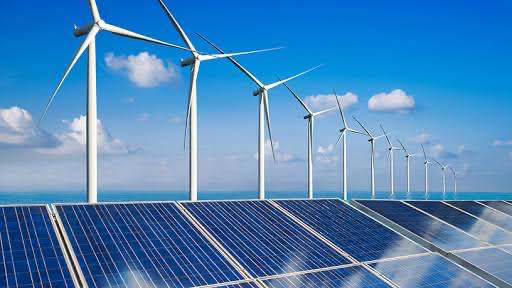254
South Africa’s energy sector, a symphony of solutions emerges, highlighting the nation’s pursuit of a tech-agnostic approach to its energy mix. From renewable sources to traditional fuels, South Africa’s diverse energy portfolio reflects a strategic vision aimed at ensuring sustainability, reliability, and affordability.
At the heart of South Africa’s energy strategy lies a commitment to embracing a range of technologies and fuel sources. This approach not only fosters innovation but also mitigates risks associated with dependency on any single energy source. By harnessing the power of wind, solar, hydro, and biomass, alongside conventional coal and gas, South Africa aims to balance the imperatives of environmental stewardship and energy security.
Renewable energy plays a pivotal role in South Africa’s quest for a sustainable future. The country’s abundant solar resources and favorable wind conditions position it as a prime candidate for large-scale renewable energy projects. Investments in solar photovoltaic (PV) and wind farms have surged in recent years, contributing significantly to the nation’s energy transition and reducing its carbon footprint.
In parallel, South Africa continues to leverage its extensive coal reserves to meet its energy needs. While coal remains a contentious issue due to its environmental impact, South Africa recognizes the importance of ensuring a reliable and affordable energy supply, particularly for industries and households reliant on traditional power sources.
The integration of renewable energy into South Africa’s energy mix is not without its challenges. The intermittent nature of wind and solar power presents logistical and technical hurdles, necessitating innovative solutions for energy storage and grid management. However, advancements in battery technology and smart grid infrastructure offer promising pathways to address these challenges and optimize the utilization of renewable resources.
Moreover, South Africa’s energy transition is underpinned by a commitment to inclusivity and community engagement. The rollout of renewable energy projects is accompanied by efforts to empower local communities and enhance socioeconomic development through job creation, skills training, and enterprise development.
As South Africa charts its course towards a more sustainable and resilient energy future, collaboration between government, industry, and civil society remains paramount. By fostering partnerships and leveraging expertise from diverse stakeholders, South Africa can unlock new opportunities and overcome the complex challenges inherent in its energy transition journey.
The symphony of solutions shaping South Africa’s energy landscape reflects a vision of resilience, innovation, and sustainability. As the nation continues to navigate the complexities of its energy transition, there is optimism that strategic investments, technological advancements, and collaborative efforts will pave the way for a brighter, more prosperous future for all.
Source: Engineering News
At the heart of South Africa’s energy strategy lies a commitment to embracing a range of technologies and fuel sources. This approach not only fosters innovation but also mitigates risks associated with dependency on any single energy source. By harnessing the power of wind, solar, hydro, and biomass, alongside conventional coal and gas, South Africa aims to balance the imperatives of environmental stewardship and energy security.
Renewable energy plays a pivotal role in South Africa’s quest for a sustainable future. The country’s abundant solar resources and favorable wind conditions position it as a prime candidate for large-scale renewable energy projects. Investments in solar photovoltaic (PV) and wind farms have surged in recent years, contributing significantly to the nation’s energy transition and reducing its carbon footprint.
In parallel, South Africa continues to leverage its extensive coal reserves to meet its energy needs. While coal remains a contentious issue due to its environmental impact, South Africa recognizes the importance of ensuring a reliable and affordable energy supply, particularly for industries and households reliant on traditional power sources.
The integration of renewable energy into South Africa’s energy mix is not without its challenges. The intermittent nature of wind and solar power presents logistical and technical hurdles, necessitating innovative solutions for energy storage and grid management. However, advancements in battery technology and smart grid infrastructure offer promising pathways to address these challenges and optimize the utilization of renewable resources.
Moreover, South Africa’s energy transition is underpinned by a commitment to inclusivity and community engagement. The rollout of renewable energy projects is accompanied by efforts to empower local communities and enhance socioeconomic development through job creation, skills training, and enterprise development.
As South Africa charts its course towards a more sustainable and resilient energy future, collaboration between government, industry, and civil society remains paramount. By fostering partnerships and leveraging expertise from diverse stakeholders, South Africa can unlock new opportunities and overcome the complex challenges inherent in its energy transition journey.
The symphony of solutions shaping South Africa’s energy landscape reflects a vision of resilience, innovation, and sustainability. As the nation continues to navigate the complexities of its energy transition, there is optimism that strategic investments, technological advancements, and collaborative efforts will pave the way for a brighter, more prosperous future for all.
Source: Engineering News



